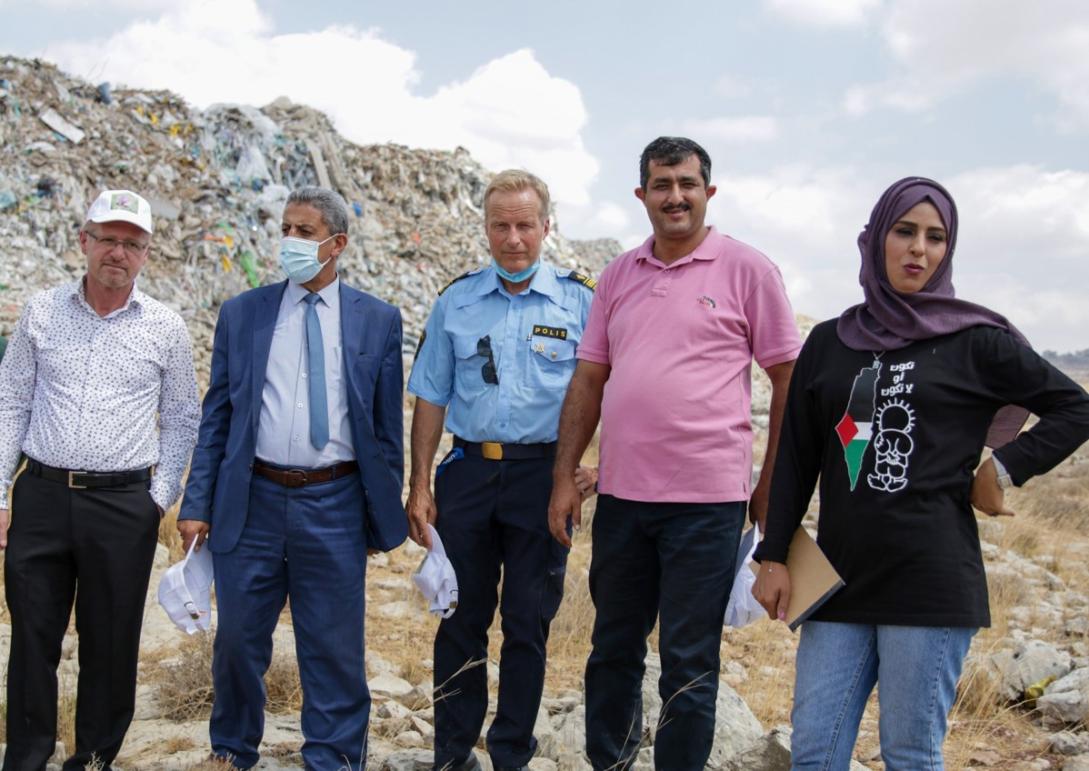Climate Change - A Priority for EU's Security and Defence Policies

The Environmental Crime Adviser at EUPOL COPPS, the EU Police and Rule of Law Mission for the Palestinian Territory, organised a ministerial visit to an illegal dumpsite.
Climate change has become more visible in recent years, affecting our daily lives. Rising temperatures will make parts of the global uninhabitable, with knock-on effects on security as societies struggle to adapt to a growing water scarcity and lower agricultural output. This will increasingly undermine peace and security, especially in fragile countries.
Furthermore, the Russian unprovoked aggression against Ukraine and the current energy crisis add a shifting geopolitical, strategic and economic context to the discussion on the links between climate change and security, highlighting the need to reduce fossil fuel dependencies in the defence sector. The war in Ukraine has also reminded us again of the extremely harmful environmental impact of conflicts that are now very visible at EU borders.
Taking stock of progress
The EEAS, together with the Commission and EDA, has accelerated in the last few years its work on addressing the link between climate change and security into its peace and security work and defence policies. The EEAS, Commission and EDA have just presented the first Joint Progress Report on climate, defence and security to Member States. Overall, progress has been significant.
In order to prevent a crisis from erupting, the EU has enhanced the environmental awareness of our early warning and strategic foresight tools. This is crucial also with a view to the EU-led civilian and military missions and operations, which will increasingly have a role to play in addressing climate-related challenges. In this context, the deployment of the first environmental advisors to two civilian CSDP missions was an important step. By 2025, all CSDP missions and operations will include environmental advisors within their staff. In addition, the EU has is in assessing the environmental footprint of CSDP missions and operations.
As the world’s biggest contributor of climate finance, the EU is supporting adaptation and mitigation, especially in fragile and conflict-affected states and regions. It also supports projects focusing on security risks posed by climate change. For instance, the EU and the UN Environment Progress have worked together to develop tools and capacities to better analyse and prevent climate related security risks in two pilot countries.
Greening defence
The defence sector and the armed forces will also be effected by climate change in many ways, while at the same time asked to reduce their energy consumption. There is no contradiction between defossilisation of defence and ensuring operational effectiveness, quite the opposite. The EU has developed different fora to support Member States but more needs to be done.
Next steps in tackling the climate and security challenge
The EU will continue addressing climate change in EU security and defence policies. There is a clear need to step up its engagement in this field to match the new challenges and the changing geopolitical setting. In 2023, the EU will present an ambitious framework for the EU’s work on climate, peace and security, allowing us to address this issue in a robust and efficient manner. And the EU will continue supporting its Member States in greening their defence sector.
Finally, since climate and environmental risks do not respect national borders, partnerships and multilateral commitment are needed to tackle the climate and security challenge efficiently. The UN and NATO are the EU’s key partners on this topic. We are also engaging more and more with a number of regional organisations, such as the African Union, the League of Arab States and the Organization for Security and Co-operation in Europe.





